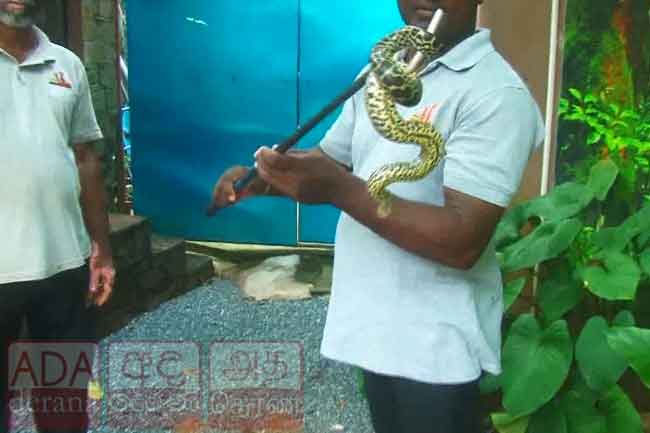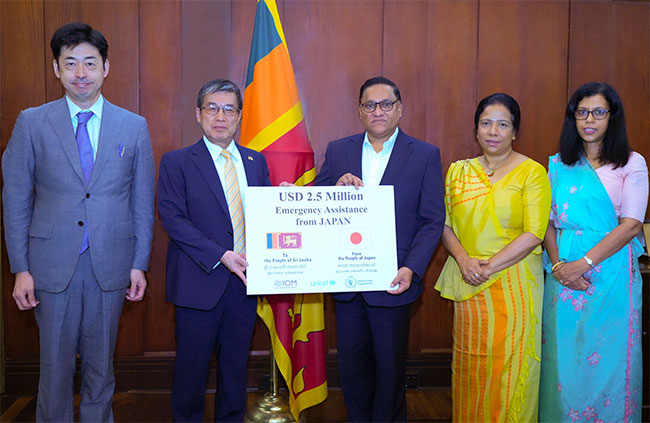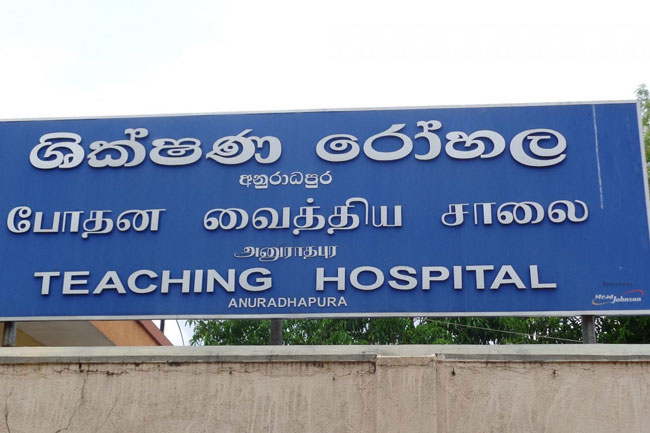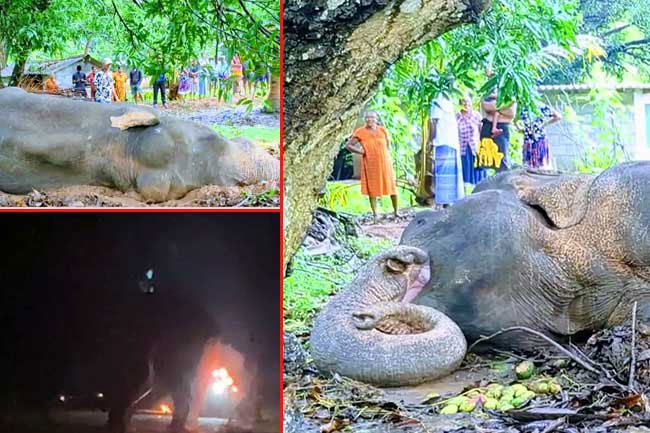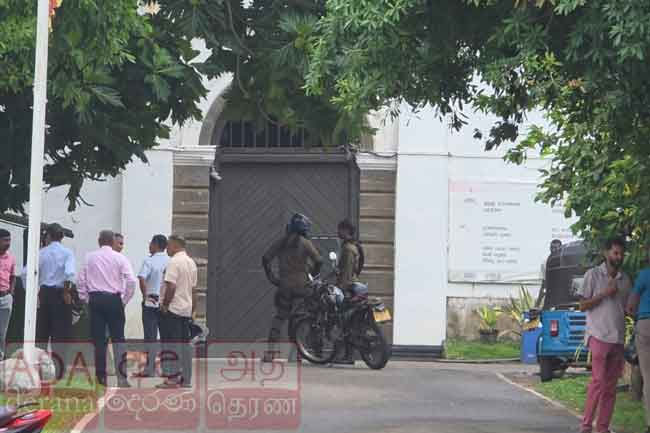
Parliamentary corruption watchdog, the Committee on Public Enterprises (COPE) has reprimanded top officials of the Ceylon Electricity Board (CEB) for attempting to meddle with the regulatory work of the Public Utilities Commission of Sri Lanka (PUCSL) by issuing - what they termed as - threatening letters. In a letter dated 13 July 2018 addressed to the Chairman PUCSL, the General Manager of the CEB, Engineer A.K. Samarasinghe, stated that the CEB has no means to process annual regulatory levy of the PUCSL unless the CEB Engineers’ Union withdrew the TU action or the invoice is sent under the signature of the “duly appointed new Director General of PUCSL”. The CEB Engineers Union has declared a non-corporation action from 8 May 2018 with Damith Kumarasinghe, Director General of PUCSL. “This regulatory levy is mandatory payment by law to the PUCSL by the CEB for its regulatory work carried out. We in the COPE believe CEB has no right to threaten the PUCSL to change its top officials just because one trade union or engineers demand so. Law is law and they have to pay the regulatory levy and it cannot be changed based on individual interest. If so, they can go before the Cabinet and work towards changing the law,” COPE Chairman Sunil Handunnetti told Ceylon Today, when inquired. COPE summoned both CEB and PUCSL officials last Tuesday (7) to inquire into alleged corrupt and controversial power purchasing deals between the CEB and independent power producers (IPP). The CEB and the PUCSL were at loggerheads for several months over the former’s move to enter into power purchasing agreements with three retired IPPs in 2018 as well. Several interested parties including media raised concerns about a controversial payment of Rs.850 million by the CEB to the ACE Embilipitiya for purchases during the month of April following the Power and Renewable Energy Ministry granting special approval to do so. ACE Embilipitiya saga The Power and Renewable Energy Ministry granted special approval earlier July to the CEB to make payments for outstanding bills since signing the agreement in April 2018, after receiving the approval from the Ministry Secretary Dr. B.M.S. Batagoda. This was following, the CEB General Manager, in a letter to the Secretary on 17 July, requesting special approval to make payments to the power supplier as the PUCSL had not approved the power purchase agreement signed in April. The agreement was signed for purchase of emergency power up to 100MW for three years following Cabinet approval. The Secretary, replying the letter on the same day, granted CEB approval to pay the power supplier, noting that the priority of the Government was to ensure uninterrupted power supply to avoid serious socioeconomic repercussions. Dr. Batagoda notes that the “Sri Lanka Electricity Act does not provide provisions for extensions of existing Independent Power Producers (IPPs)”. Further the Secretary has also instructed the CEB to provide “full justification to the PUCSL for obtaining approvals for all three retired thermal power plants since the policy of Government is to use private investments through IPP to generate electricity”. Interestingly, the former Deputy General Manager (Energy Purchases) Sujeewa Abeywickrama in a letter addressed to the Assistant General Manager (Transmission) who criticised the decision was later removed from post by the management pending an inquiry allegedly for insubordination displayed by refusing to proceed with the payment. Meanwhile, in a letter to CEB General Manager, the CEB Engineers union said: “Considering apparent risks to our members, please be informed that the EXCO unanimously decided to instruct relevant members of the CEBEU not to get involved in making payments to Ace Embilipitiya Power Plant for the energy purchased after April 2018 until legal impediments for the same are cleared.” The PPA with Ace Power Embilipitiya (Pvt) Limited, which is a fully owned subsidiary of Aitken Spence group that owns a 100 megawatts thermal power plant, initially lapsed in 2015 but was renewed for a one more year in April, 2016 and again for another year in April 2017. Someone gained Aitken Spence PLC, which witnessed drop-in revenue in its power generation sector, had clearly gained earnings since the renewal of the PPA since 2016. The cumulative sector revenue increased from 4.1 billion rupees in the previous year to 16.0 billion rupees in 2016/17, with the sector recording a profit of 1.1 billion rupees in 2016/17, compared to a loss of 494.7 million rupees recorded in the previous year. “The increase in revenue was mainly on account of the resumption of activities at the Ace Power Embilipitiya, following the renewal of the Power Purchase Agreement (PPA) by the Ceylon Electricity Board (CEB). With a full year of operations under its belt, the sector was able to achieve a complete turnaround in performance in the current financial year. I am happy to note the CEB has renewed the PPA for another year from April 2017,” J.M.S. Brito, Deputy Chairman and Managing Director of the Company noted in its 2016-2017 annual report (page -23). Not audited No auditing has ever been carried out of the massive purchases of power that the Ceylon Electricity Board (CEB) has been doing from independent power producers (IPP). Annual purchases average from Rs 160 billion to Rs 200 billion and there is no documented record of how the decisions were made to make the purchases. This is despite the PUCSL insisting the need of an auditing mechanism at the level of power dispatching (procurement) five years ago in 2013- the last time it allowed CEB to go for a tariff hike. The dispatch of power from country’s numerous plants changes due to weather patterns and availability of hydropower and the dispatch cost can vary from 100 to 600 million rupees per day, the PUCSL observed. The statistics available with the PUCSL and the CEB shows that 80 percent of the electricity delivering cost comprises of the generation cost. The PUCSL in 2016 has come up with a complete proposal with auditing guidelines in 2016 following a comprehensive study as this is a specialized auditing function unlike normal financial auditing, Kanchana Siriwardana, Director - Tariff & Economic Affairs said. Meanwhile, Auditor General’s Department sources said they too have recognized the need to audit power dispatch process by a specialised third party as they are currently carrying out general audits in the CEB. The PUCSL has also had correspondents with the International Monetary Fund (IMF) regarding the matter insisting on the necessity of the dispatch auditing system. This was in response to queries by the IMF as to why the regulatory body was not allowing a tariff revision for a longer period despite the CEB running at a loss. “If the dispatch process could be properly audited and the procurement was done based on a merit system on least cost, not only the CEB losses could be reduced but can give electricity to much lower price,” Siriwardana observed. When asked as to why the PUCSL- as a regulatory body- could not get involved in playing a role in auditing, he said; “We tried. But due to structural and procedural hiccups, lack of documentation, data and transparency the initial attempt on dispatch auditing failed.” The PUCSL believes the need of technology and software implemented at the System Control Centre (SCC) of the CEB in optimizing procurement as well as cutting down exorbitant amounts paid to IPPs as start up and shut down costs which generally run to few hundred millions of rupees. Meanwhile, Ceylon Today reliably learns that the Auditor General’s Department is in the process of preparing a comprehensive report on dispatch auditing and CEB procurements from IPPs. Sulakshana Jayawardena, Director (Development) of the Ministry said that the recently inaugurated new SCC fully implemented the new e-terra software (originated in France and customised in India) by 3 August 2018, few days before CEB was summoned by the COPE. “With this, the SCC with a facility called Automated Generation Control, has identified Victoria, Kotmale, Luxapana and Samanalawewa as control power plants where they can control and monitor power generation of these plants,” he added. When asked whether the software is capable of applying same procedure to IPPs as well, Jayawardena admitted even though all substations and transformers in the grid are connected to the system it is only capable of monitoring the generation of IPPs but not control. In the meantime, the Cabinet approved a proposal by Minister Ranjith Siyambalapitiya to gazette the drafted bill to amend Sri Lanka Electricity Act No 20 of 2009 amended by the act No 31 of 2013, with the intention of ‘avoiding difficulties’ in the process of purchasing electricity generated by renewable Energy Sources. This means procuring energy from IPPs without the approval from the PUCSL. Sequence of events in the extension of PPA of Ace Embilipitiya(Pvt) Ltd: 1.For the Board Paper initiated by AGM (Transmission) Board approval (in principal) was granted for extension of 03 Retired IPPs for at least 2 years from 2018 with the option of further extensions until major power plants are commissioned as per item No. 18.01.13 of the minutes of the Board meeting held on 27 December, 2017. 2. CEB requested Ministry Secretary to obtain Cabinet approval for the extensions of 03 PPAs as per above Board approval. 3. The above Board approval was communicated to DGM (EP) Branch on 1 February, 2018. 4. DGM (EP) by his letter No. DGM (EPT)/Extensions/02 dated 5 February, 2018 raised the matter that the existing practice adopted in extensions was not in line with the Electricity Act. He also proposed as a way out, a methodology for extension of the three retired IPPs in a more competitive manner which could be made complying with the electricity Act, also in line with PUCSL requirements. 5. CEB informed PUCSL that Ministry of Power and Energy was in the process of extending the above three PPAs by further three years to maintain uninterrupted power until major power plants are implemented expecting to forward the Cabinet approvals and relevant PPAs for concurrence of the Commission. 6. CEB received the instruction by the Ministry Secretary as per his letter No. PE/TEN/CANC/SS/2016/22 dated 28 March, 2018 to act as per the proposals contained in the Cabinet Memorandum dated 15 March, 2018 citing that the Cabinet Decision had already taken for the same on 27 March, 2018. 7. As per DGM(EPT)’s letter No: DGM(EPT)/Extensions/02 dated 29 March, 2018 the companies were requested to provide a letter from PUCSL giving concurrence regarding generation license or at least no objection for extension of PPAs for a period of three years. 8. Chairman, CEB, requested to DGM(EP) that he needs to sign the PPA with ACE Power Generation Embilipitiya on 5 April, but DGM(EP) has expressed his view that the difficulty of preparing documents without receiving official documents regarding the Cabinet Approval. 9.Draft PPA for a term of three years as per the Cabinet Memorandum (without figures) was submitted by DGM (EP) to the AGM(Transmission), P, L. G. Kariyawasam on 5 April, requesting to obtain the Cabinet Decision and legal clearance prior to signing the PPA. 10. Chairman, CEB has informed Chairman, PUCSL that CEB is compelled to extend the PPA of ACE Embilipitiya for the period of another three years to maintain the uninterrupted power supply in the country, subject to the approval of PUCSL, by his letter No: CEB/CH/183/2018 5 dated April, 2018. 11. On 05 April, 2018 only Chairman CEB, GM and AGM (Transmission) signed the PPA and all others signed on 6 April, 2018 by circulation arranged by AGM (Transmission). 12. Accordingly, PPA was signed between CEB and the above Company on 05 April, 2018 for a period of three years. 13. Power plant was dispatched by CEB form 12.00hrs on 6 April, 2018 and stopped due to lack of fuel on the same day. Once the AGM (Transmission) has given the comfort letter (as per the Cabinet Approval it is only for ACE Matara) to CPC the Power plant was dispatched by CEB from 7 April, 2018 onwards under the new PPA. 14. A copy of the signed PPA was received by DGM (EP) on 9 April, 2018 to proceed with. 15. Board Noted that the CEB has entered into the PPA with Ace Embilipitiya (Pvt) Ltd as per item No. 18.08.124.A of the minutes the Board meeting held on 9 April, 2018. 16. On 10 April, 2018 CEB received Cabinet Decision dated March 28, 2018 granting approval for extension of PPAs with three IPPs for a period of three years upon expiry of their Term in 2018. 17.General Manager, CEB has sought approval of the PUCSL for procurement of Electricity from three IPPs including ACE Power Embilipitiya (Pvt) Ltd. by his letter No: AGM(CS)/DGM(CS&RA)/REG/7 dated 01 May, 2018 by submitting the PPA with Ace Embilipitiya (Pvt) Ltd signed on 05 April, 2018. 18. PUCSL informed CEB to provide details to the Commission under which Clause of the Electricity Act that Commission’s approval is requested by CEB for procurement of power from the three Retired power plants.
Popular News

